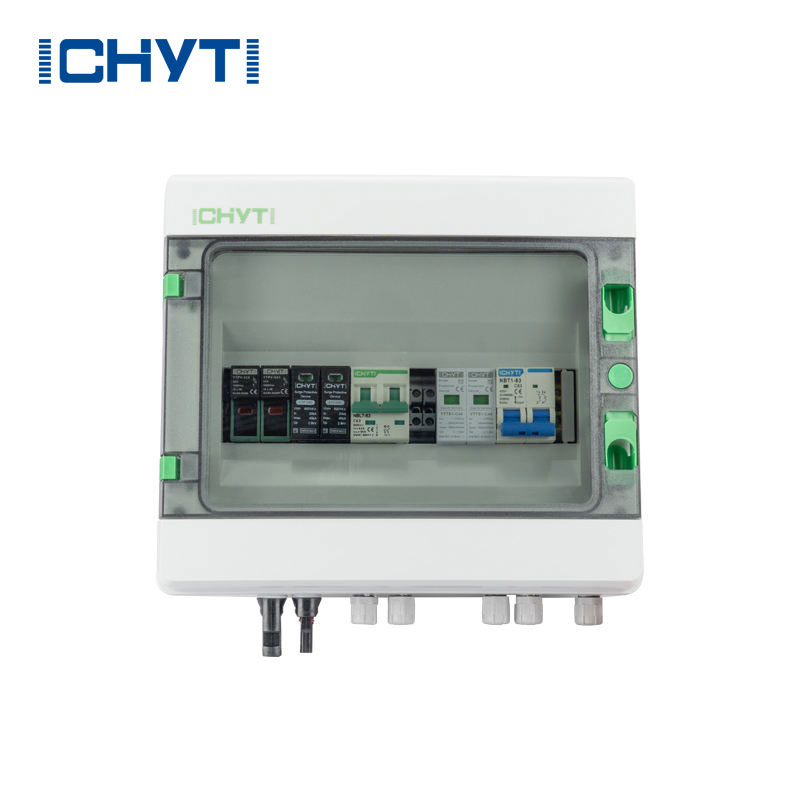What are the benefits of solar combiner box?
2024-05-23
A solar combiner box, also known as a PV combiner box, is a crucial component in solar power systems, particularly in large-scale photovoltaic (PV) installations. It consolidates the output of multiple solar strings (series of solar panels) into a single output that is then connected to an inverter. Here are the key benefits of using a solar combiner box:

### Key Benefits of a Solar Combiner Box
1. Simplifies System Design and Installation:
- Centralized Wiring: Combines multiple string inputs into a single output, reducing the complexity of wiring and minimizing the number of cables running to the inverter.
- Efficient Layout: Organizes and simplifies the layout of the solar power system, making installation quicker and more efficient.
2. Enhanced Safety:
- Integrated Protection: Often equipped with fuses, circuit breakers, or surge protection devices that safeguard the solar array and downstream equipment from overcurrent and electrical faults.
- Isolation: Provides a convenient location for isolating individual strings or the entire PV array for maintenance or emergency situations.
3. Improved System Monitoring:
- Monitoring Capabilities: Many combiner boxes include built-in monitoring systems that allow for real-time tracking of the performance of individual strings. This helps in quickly identifying and diagnosing issues such as shading, dirt, or faults.
- Data Collection: Collects and transmits data regarding current, voltage, and other performance metrics to a central monitoring system, enhancing the overall efficiency and reliability of the solar installation.
4. Cost-Effective:
- Reduced Cabling Costs: By consolidating multiple string outputs, the amount of cabling required to connect the PV array to the inverter is significantly reduced, leading to lower material and labor costs.
- Maintenance Savings: Simplifies troubleshooting and maintenance, which can lead to reduced downtime and lower maintenance expenses.
5. System Scalability:
- Flexible Expansion: Facilitates easy expansion of the solar power system. Additional strings can be added to the combiner box as the system grows, allowing for modular scalability.
- Adaptability: Can be customized to accommodate different system sizes and configurations, making it versatile for various solar installation projects.
6. Enhanced Performance:
- Optimized Energy Flow: Ensures efficient energy flow from the solar panels to the inverter, minimizing power losses that can occur due to voltage drops and inefficient wiring.
- Load Balancing: Helps in balancing the load among different strings, optimizing the overall performance of the solar array.
7. Environmental Protection:
- Weatherproof Enclosure: Typically housed in a weatherproof, UV-resistant, and corrosion-resistant enclosure, protecting the internal components from harsh environmental conditions.
- Durability: Built to withstand extreme weather conditions, ensuring long-term reliability and durability of the solar power system.
8. Regulatory Compliance:
- Standards and Certifications: Designed to comply with industry standards and regulations, ensuring safe and reliable operation of the solar power system.
- Inspection and Approval: Simplifies the process of system inspection and approval by regulatory bodies, as the combiner box integrates many of the required safety features.
### Conclusion
A solar combiner box is a vital component in optimizing the performance, safety, and efficiency of solar power systems. By centralizing wiring, providing enhanced protection and monitoring, reducing costs, and enabling system scalability, it plays a key role in ensuring the effective and reliable operation of PV installations. Whether for residential, commercial, or utility-scale projects, incorporating a solar combiner box brings numerous benefits that contribute to the overall success and sustainability of solar energy solutions.


